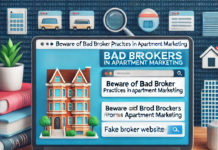SMS marketing, otherwise known as text message marketing, allows companies to engage with current and potential customers via text messaging. In the past, companies of all sizes have promoted sales, loyalty discounts, and promotional events via email. However, these days, people’s emails are flooded, and they often delete promotional email messages without even opening them. Businesses’ marketing information, as well as the potential for revenue, is lost.
On the other hand, people pay more attention to their text messages than their emails. Not only do they use text messages to communicate with family members, friends, and even colleagues, but they have immediate access to text messages as people carry their mobile devices with them constantly. Furthermore, people are starting to use texting to communicate with companies’ customer service more often than over the phone or email. Texting services for businesses allow for more efficient and immediate customer service conversations, delivery alerts, loyalty point information, and discount alerts.
For these reasons, establishing a SMS marketing program could be a savvy business move for your company. In an interview with Digiday, one startup CEO stated that SMS marketing services are “the final frontier of marketing and brand communications.”
How does SMS Marketing Compare to Email Marketing Strategies?
Text message marketing campaigns have shown to be more effective than email marketing campaigns. According to the marketing firm Redeye, their SMS campaigns show an open rate of texts as 99%, with 97% of messages being read within 15 minutes of delivery. Receiving a text from a brand feels similar to receiving a text from a friend or family member. More specifically, a Director of Engineering at an e-commerce company stated that their SMS advertising campaign demonstrated that their texts receive open rates close to 100%, while email open rates are only 15-30%. According to Omnisend, a marketing platform, the number of SMS messages sent by the more than 50,000 companies that use its software increased by 378% between 2019 and 2020, while email campaigns were only up 108%. It is clear that SMS campaigns are a more effective marketing tool than email.
Why Are Text Marketing Campaigns So Successful?

Text message marketing campaigns are effective because people are incredibly connected to their mobile devices. Not only do they use them to communicate with people, but they also use their phones for maps, social media, internet viewing, and more. More specific to SMS advertising, people primarily use their mobile devices when shopping online. Research shows that three-quarters of all e-commerce sales in 2021 came from mobile devices. SMS marketing platforms allow brands to keep customers engaged in a device they are already using for shopping; text messages help put customers on the path to purchase something.
As a result, these SMS marketing services are making a lot of money for a variety of businesses. Attentive’s SMS Benchmarks Report surveyed 400 companies about their SMS campaigns and 60% of the companies responded that their text campaigns “significantly or overwhelmingly increased revenue generation.”
How Can I Use Text Message Marketing to Help My Business?
The first step in setting up your company’s SMS marketing platform is getting subscribers to sign-up. This is the biggest challenge because people are reluctant to give out their personal information, such as email addresses and phone numbers. Companies must give consumers a reason to opt into SMS advertising. Your company must commit to not sharing your subscribers’ personal information; you must establish a one-on-one relationship. Additionally, you can offer product alerts, shipping updates, and even discount codes if the customer agrees to share their contact information. For example, companies often offer a 10% discount code once a customer agrees to subscribe to a text marketing campaign. As a result, effective SMS campaign must obtain subscribers as a crucial first step.
Once subscribers have shared their phone numbers, the frequency and tone of the text messages is critical to building relationships and having a successful SMS advertising campaign. First, companies should send a triggered welcome message once a subscriber has “opted in” in order to set a warm and friendly tone. Text marketing messages should use the natural, friendly, informal tone of text messages–as if it’s a text conversation. Research shows that click rates are higher when text marketing uses a more conversational tone. Some SMS marketing messages even use emojis. Each business should have their own unique text message “voice” so that the customer feels as if a conversation is happening between two people.
While SMS campaigns allow for more intimacy and for a connection between customers and businesses–thus resulting in more revenue–it is important not to text too much. Less is more: businesses should send 4-6 promotional texts per month. Furthermore, be thoughtful about the content creation of your text messages. Businesses should personalize text messages based on the actions of the subscribers. Additionally, businesses should also develop customer text message marketing content using relevant subscriber data. The goal of SMS marketing services is to create exclusivity and intentionality in order to build customer relationships which, ultimately, leads to increased revenue.
Bottom Line: How Do I Move Forward with a SMS Marketing Platform?
As you consider using SMS marketing to publicize your business, think about partnering with a vendor who can provide expert advice and guidance to help you establish your business’s goals. Then, you can develop and institute your SMS marketing platform to suit your business and customer needs.
While SMS campaigns are shown to be effective marketing tools, it’s also important to remember to not rely on a single marketing method. Instead, consider implementing a variety of strategies to publicize your business. There are a variety of different marketing tools that will lead to a powerful ROI for your business—including, clearly, text message marketing.





